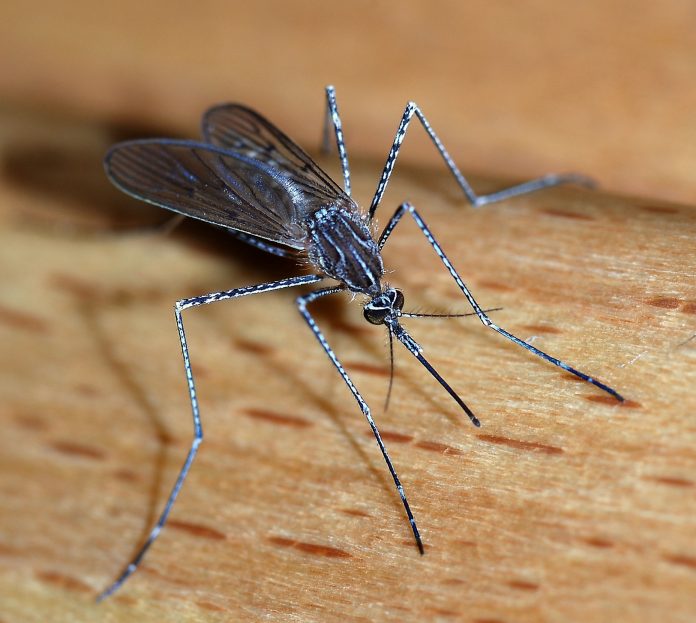No fewer than seven Nigerians have lost their lives to suspected yellow fever contracted after visiting the Yankari Game Reserve in Bauchi State even as Lassa fever has infected two new persons in Edo State but with no fatality.
However, the Nigeria Centre for Disease Control (NCDC) told The Guardian that it could only confirm four cases of Yellow fever in Bauchi but is investigating the deaths. The Centre said that three of the cases of Yellow fever are residents of Alkaleri Local Government Area (LGA) and the fourth case is a tourist who was visiting Kano State and also visited the Yankari Games Reserve in the same LGA in Bauchi State.
READ ALSO: WCS celebrates four years of zero elephant poaching in Yankari
Chief Executive Officer of NCDC, Dr. Chikwe Ihekweazu, explained: “NCDC was first notified on the 29th of August, when we received the report of a confirmed case of Yellow Fever in Kano State from a laboratory in our Yellow Fever laboratory network. Subsequent investigations led by the Kano State Epidemiology Team established that this confirmed case of yellow fever was from a patient who visited the Yankari Game Reserve in Bauchi, in August 2019 with his father. Unfortunately, the father died with similar symptoms before a sample could be collected and tested.
“Subsequently, on the 3rd of September 2019, the Borno State Epidemiology Team reported deaths among students of Waka College of Education in Biu LGA Borno State. These students visited the Yankari Game Resort in August 2019. Of the 95 students that visited the resort, eight of them developed symptoms and six had died as at the time of the report. The others are in a stable condition. Samples from these cases are being tested.
READ ALSO: Two arrested with fresh buffalo head in Yankari
“Intensification of surveillance activities has led to the identification of three more confirmed cases who are all resident in Alkaleri LGA, of Bauchi state. Altogether, we can confirm four cases of yellow fever in people that either live or have visited Bauchi in the last one month.”
The epidemiologist said since the Centre was notified, the NCDC has collaborated with the State epidemiologists of the affected States and the World Health Organisation (WHO) country office to investigate these events. We have also deployed a rapid response team to support Bauchi State to carry out further in-depth investigations, including case finding, risk communications, and support the management of cases. He said samples of the other suspected cases from Bauchi and Borno states are currently being transported to the NCDC National Reference Laboratory in Abuja for further testing.
“Today, we activated our Emergency Operations Centre to coordinate the response to this outbreak,” Ihekweazu said. The epidemiologist said Yellow Fever virus is spread through bites of an infected mosquito and there is no human-to-human transmission of the virus. He said Yellow fever is a completely vaccine preventable disease and a single shot of the yellow fever vaccine protects for a lifetime and the yellow fever vaccine is available for free in all primary healthcare centres in Nigeria as part of the routine childhood immunisation schedule. Ihekweazu encourages every family to ensure that children receive all their childhood vaccines. He said: “In addition to the vaccine, the public is advised to keep their environments clean and free of stagnant water to discourage the breeding of mosquitoes and ensure the consistent use of insecticide treated mosquito nets, screens on windows and doors to prevent access for mosquitoes. Especially, hikers, park visitors and people engaged with activities in the wild are encouraged to be vaccinated against yellow fever. It is important to avoid self-medication- visit a health facility immediately if you feel ill.”
The epidemiologist said a multi-agency Yellow Fever technical working group coordinated by NCDC, has been leading the preparedness and response to yellow fever in Nigeria. He said the NPHCDA is leading efforts to provide an additional opportunity of vaccination through preventive vaccination campaigns across the country.
Iheakweazu reminded healthcare workers and members of the public that the symptoms of yellow fever include yellowness of the eyes, sudden fever, headache and body pain. “If you have these symptoms or notice someone in your community displaying them, please contact your nearest primary healthcare centre,” he said.
Also, the latest weekly epidemiology report on Lassa fever, published over the weekend by the NCDC, noted: “In the reporting week 33 (12th – 18th August, 2019) two new confirmed cases were reported from Edo state, no new death. From 1st January to 18th August, 2019, a total of 3466 suspectedi cases have been reported from 22 states. Of these, 658 were confirmed positive, 18 probable and 2790 negative (not a case).Since the onset of the 2019 outbreak, there have been 145 deaths in confirmed cases. Case fatality ratio in confirmed cases is 22.0 per cent.”
The NCDC said 22 States (Edo, Ondo, Bauchi, Nasarawa, Ebonyi, Plateau, Taraba, FCT, Adamawa, Gombe, Kaduna, Kwara, Benue, Rivers, Kogi, Enugu, Imo, Delta, Oyo, Kebbi, Cross River and Zamfara) have recorded at least one confirmed case across 83 Local Government Areas.
According to the NCDC, 93 per cent of all confirmed cases are from Edo (37 per cent), Ondo (30 per cent), Ebonyi (eight per cent), Bauchi (seven per cent), Taraba (six per cent) and Plateau (five per cent) states; and the predominant age-group affected is 21-40 years.
In the reporting week 33, no new health care worker was affected and a total of eighteen health care workers have been infected since the onset of the outbreak in ten States – Edo (six), Ondo (four), Ebonyi (one), Enugu (one), Rivers (one), Bauchi (one), Benue (one), Delta (one), Plateau (one) and Kebbi (one) with two deaths in Enugu and Edo States.
The NCDC noted that 10 patients are currently being managed at various treatment centres across the country: Six at Irrua Specialist Teaching Hospital (ISTH) treatment Centre, Edo State; three at Federal Medical Centre, Owo, Ondo State; and one at Bauchi.
According to the NCDC, suspected case describes any individual presenting with one or more of the following: malaise, fever, headache, sore throat, cough, nausea, vomiting, diarrhoea, myalgia, chest pain, hearing loss and either: a history of contact with excreta or urine of rodents, history of contact with a probable or confirmed Lassa fever case within a period of 21 days of onset of symptoms; or any person with inexplicable bleeding/haemorrhagia.

















